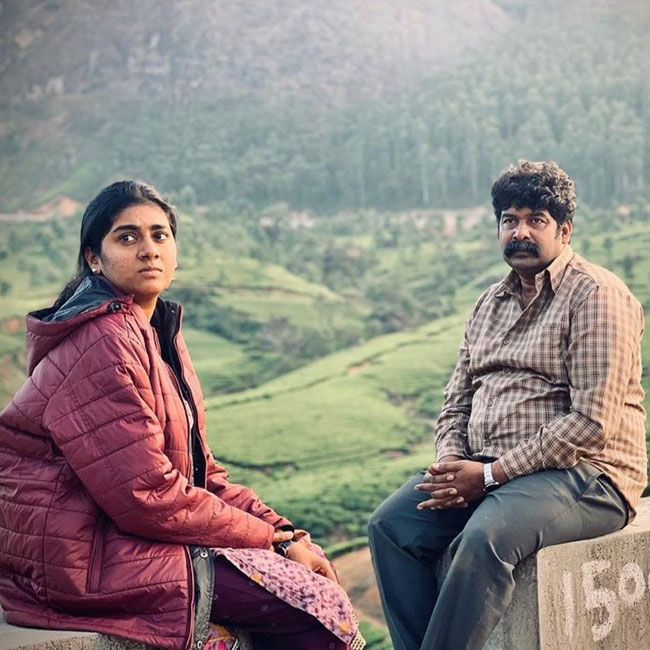Content Warning: This review contains spoilers.
Given the current scenario of our country, we are privy to the discourse around the role of the police in maintaining law and order and protecting the citizens of the state. We also have, unfortunately, over time, gathered enough evidence to prove that the police often fail to do so, deliberately. But who saves the police when they get into trouble?
Nayattu, a Malayalam-language film streaming on Netflix, is a drama-cum-thriller-cum-political commentary that follows three police personnel on the run who are declared murderers by the state. The film reveals the workings of a murky, unforgiving system that is true to no one except those in power.
Nayattu, a Malayalam-language film streaming on Netflix, is a drama-cum-thriller-cum-political commentary that follows three police personnel on the run who are declared murderers by the state. The film reveals the workings of a murky, unforgiving system that is true to no one except those in power.
Directed by Martin Prakkat, Nayattu stars Nimisha Sajayan as constable Sunitha Krishna, Joju George as veteran ASI KP Maniyan, and Kunchako Boban as the new joinee Praveen Michael. Amidst the upcoming local elections and campaigning in full force, the three protagonists live normal lives with normal problems. Things go on as usual until Sunitha files a complaint against a troublesome relative, Biju, who is incidentally a part of a Dalit youth group working closely with a contesting party.
One thing leads to another, and Maniyan and Biju end up getting into an ugly brawl at the police station. Bitterness ensues. But matters take a turn for the worse when, in a completely unrelated incident, another youth from the party – Jayan – gets hit by Maniyan’s car that carried the three protagonists, and is declared dead by the doctor upon his arrival at the hospital.
What follows in Nayattu is a thrilling chase between the protagonists and the Crime Branch police force as the youth’s death becomes a hot topic in the news, and politicians battle it out in order to secure their vote base right before the election.
Also read: Film Review: Biriyani – A Gripping Take On The Life Of Muslim Women In India
There’s Always A Scapegoat At The State’s Disposal
Nayattu is straightforward and unassuming, but depicts the grim reality beautifully. The tension and pressure tears through the screen: the protagonists’ desperation to flee the town with no plan or solution and with their lives on hold; the pressure from the Chief Minister on the Crime Branch to catch the suspects as proof of his capabilities as a leader; the youth’s death that is turned into a media circus that political parties heartily milk to secure their vote base – all of it is a commentary on the state of affairs we have seen unravel in front of us day after day.

What is interesting about Nayattu is the veiled presence of caste. Sunitha and Maniyan are both Dalits, as is Biju and Jayan, who dies. But their status as Dalits does not inform their experiences in Nayattu. There is a moment, however, where caste plays out – right before Biju and Maniyan’s brawl where Biju implies that there are laws to protect people like him from harassment and humiliation. This moment felt out of place for a film that did not ride on caste to make its point in the first place- instead, it did, in fact, imply that people from marginalised communities may misuse the laws meant to protect them, which was as unnecessary as it was untrue.
Maniyan as a veteran was the perfect contrast to Praveen, a newbie who assumed that his job meant being honest and dutiful. Through Nayattu, it is clear that Maniyan knows how the state machinery works and how the hunt would pan out. Maniyan has lived and experienced the reality of being a cog in the larger system, and has played his part wherever needed. The film depicts this reality well.
The message in Nayattu is clear – the state will always have someone to use as a scapegoat in order to stay in power. First we see a Dalit youth and a bunch of low-level police personnel made use of, then, in a surprising twist, we see the tables turn on the head of investigation at the Crime Branch who is reminded that she will just as easily be blamed if she doesn’t comply with orders that force her to defy the laws she is trained to follow and protect. In the ugly world of politics, the police is the literal instrument of the state – they can be played to the ruling party’s tunes.
Also read: Film Review: The Great Indian Kitchen – Serving Patriarchy, Piping Hot!
A Few Great Moments For Malayalam Cinema
There were some key moments that stood out in Nayattu, simply because they were progressive without the hullabaloo. Both the female characters – Sunitha and the Crime Branch cop, Anuradha (played by Yana Gilgamesh) – are portrayed without the pressure of proving their place in the film as women. There are no tragic storylines attached to them; no pain and trauma that makes them important characters in the film. Similarly, the moments where Praveen is seen hanging a woman’s clothes to dry and buying sanitary napkins for Sunitha without her asking are woven naturally into the film without them being seen as lessons in feminism. Though not central to the plot itself, these moments in Nayattu are commendable as they stand out from the usual charade of Malayalam films (or any other film for that matter).
Sunitha and the Crime Branch cop, Anuradha (played by Yana Gilgamesh) – are portrayed without the pressure of proving their place in the film as women. There are no tragic storylines attached to them; no pain and trauma that makes them important characters in the film. Similarly, the moments where Praveen is seen hanging a woman’s clothes to dry and buying sanitary napkins for Sunitha without her asking are woven naturally into the film without them being seen as lessons in feminism.

Nayattu leaves the ending open to interpretation. There’s thrill, action, and drama – all the things that make a film worthy of a watch. Nayattu is a wonderful attempt at depicting the viciousness of politics and the power that comes with it, and it will definitely coax you to think about our country’s state of affairs in a more nuanced, critical manner.
Featured image source: Lifestyleasia
About the author(s)
Kanksha Raina is a journalist based in Mumbai, Maharashtra. With a Master's degree in Gender, Culture & Development Studies, Kanksha is passionate about pop culture, cinema, and sexuality, with a particular focus on women's experiences. In her spare time, you can catch her reading, binge-watching her favourite TV show for the 10th time, or spending time with her cat. She is an alumnus of the Asian College of Journalism.



